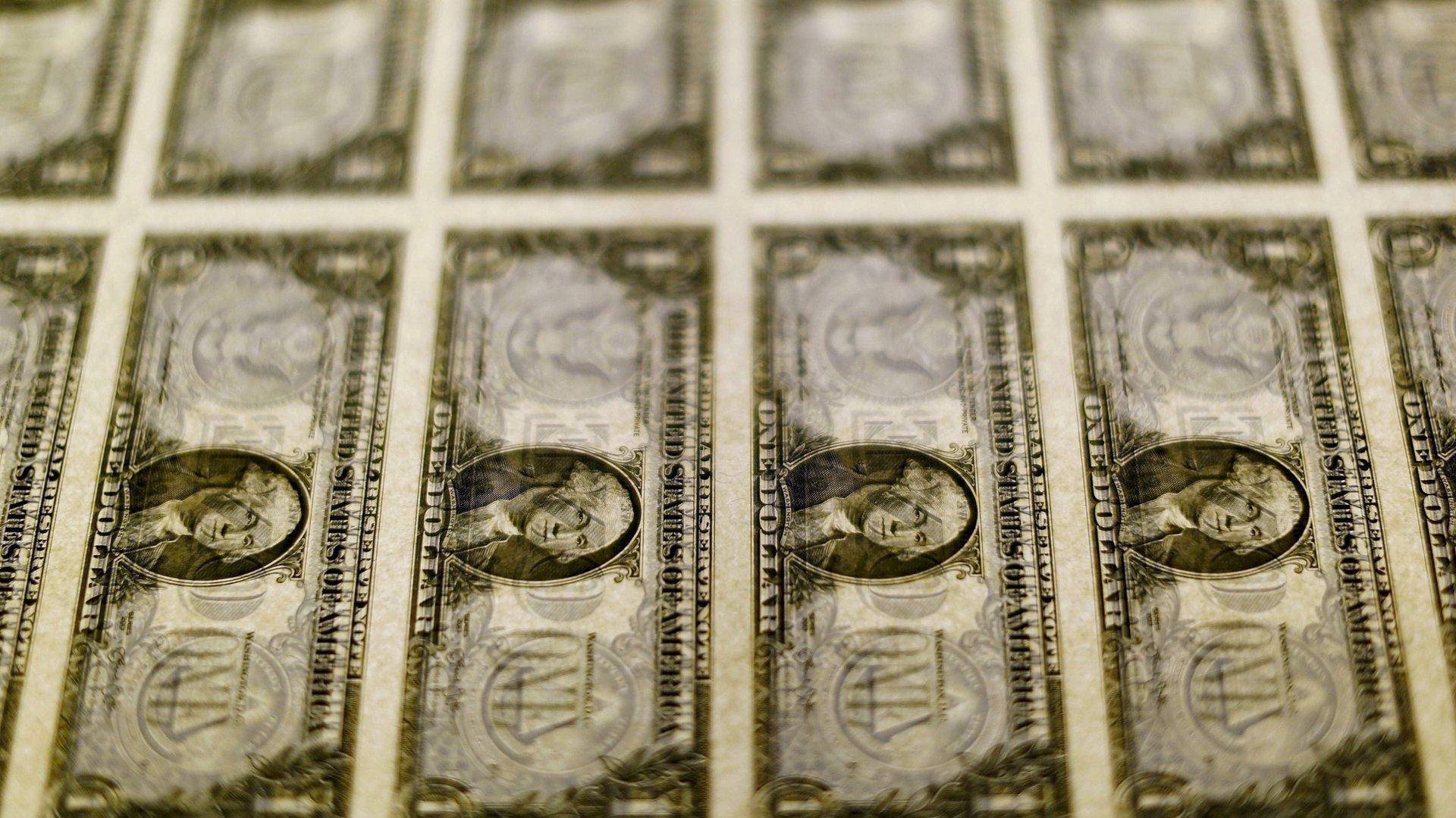Why does the Federal Reserve need a digital currency?
Digital money is nothing new—debit and credit cards have been with us for years. What’s changed is its pervasiveness. With fewer people carrying paper money, and with some places no longer accepting it, we’ve become ever more reliant on electronic cash provided by commercial institutions, from PayPal to Visa.


Digital money is nothing new—debit and credit cards have been with us for years. What’s changed is its pervasiveness. With fewer people carrying paper money, and with some places no longer accepting it, we’ve become ever more reliant on electronic cash provided by commercial institutions, from PayPal to Visa.
As physical cash goes away, so do the properties that make it special. Cash allows people to transact without a bank account, without fees, and without a middle man in the way of their access to currency issued directly by the central bank, the lender of last resort and the bedrock of the financial system.
Is it time for America’s central bank to create a digital dollar?
Congress is asking. And in hearings on July 27, a group of experts laid out their reasons why the Federal Reserve needs to go digital. Here are a few of their arguments.
Payments are expensive
Andrew Levin, an economics professor at Dartmouth College and a 20-year veteran of the Federal Reserve, highlighted examples of businesses in New England that pay 3% or even more to the likes of Square, PayPal, and Visa whenever a customer makes a digital transaction. He points out that small businesses typically get by on tight margins, and high payment costs could make the difference between between surviving and going under.
He notes that physical money isn’t free either, as businesses have to pay for security and cash management, which can cost as much as the electronic services. Levin suggests that a central bank digital currency, by contrast, could be designed to be costless or at least lower cost, which could promote job creation.
A digital dollar could be a new tool for monetary policy
The Fed has already pushed interest rates about as low as they can go, meaning policy makers have less scope to rev up the economy than they used to. A digital currency would let the central bank deposit money directly into accounts held by general public (so-called “helicopter money”), as Julia Coronado, president and founder of MacroPolicy Perspectives, said in her testimony. This could be faster, cheaper, and better targeted than the paper stimulus checks issued by the US government during the pandemic. (Digital money also could also come with an expiration date to encourage spending.)
🎧 For more intel on the digital dollar, listen to the Quartz Obsession podcast episode on the future of cash. Or subscribe via: Apple Podcasts | Spotify | Google | Stitcher.
China is already far along in developing a digital currency
China is among the furthest along in piloting a digital currency, giving the world’s second-largest economy the opportunity to be the leader and standard-setter for this critical digital infrastructure.
Yaya Fanusie, adjunct senior fellow at the Center for a New American Security, noted that China plays an influential role at the Bank for International Settlements, which is set to lead deliberations over central bank digital currency standards. Those standards could end up benefitting China’s goals and interests instead of the US’s. “The United States will need to increase its CBDC expertise and assert greater influence in the BIS and other international forums that guide CBDC development,” Fanusie testified.
It’s the Federal Reserve or Facebook
If central banks don’t upgrade their payment systems, multinational companies like Facebook (whose initial digital coin effort was greeted by governments with a barrage of concerns) and Amazon could pull ahead and disintermediate the government authorities.
“In a scenario where one or two Big Tech firms succeeded in dominating the entire US payments system, policymakers would face a regulatory nightmare in seeking to preserve consumer privacy and equitable treatment of small businesses,” Dartmouth’s Levin wrote.
A digital currency would support the dollar’s role globally
The US dollar is the main currency for international transactions, giving the American government outsize influence in global affairs through the use of sanctions. If central bank digital currencies prove to be more efficient than the existing, dollar-heavy correspondent banking system, that could gradually undermine the dollar’s role in international payments, noted Julia Friedlander, senior fellow and deputy director at the Atlantic Council’s GeoEconomics Center. “The use of CBDCs as a payments technology could begin to cause cracks in the dollar’s ubiquity in international transactions,” Friedlander testified.
Central bank digital currencies still have risks
Despite the advantages, a central bank digital currency also has some serious risks for the economy and the financial system. If regular people can create accounts directly with the central bank, that could undermine the existing commercial banking system. Depending on how the electronic money is designed, it could be exploited by money launderers and hackers. If the government fails to protect the system from outages and cyber attacks, people could lose confidence in the lender of last resort.
Even so, a number of experts think central bank digital money has promise, and is likely inevitable. “The US strength in the international payments and financial services space is an American treasure that has tremendously benefited the country,” wrote Robert Baldwin, head of policy at the Association for Digital Asset Markets, in his testimony to the House Financial Services Committee. “The US must continue to innovate in this space so that it does not fall behind to pressure from international competition and digitization.”